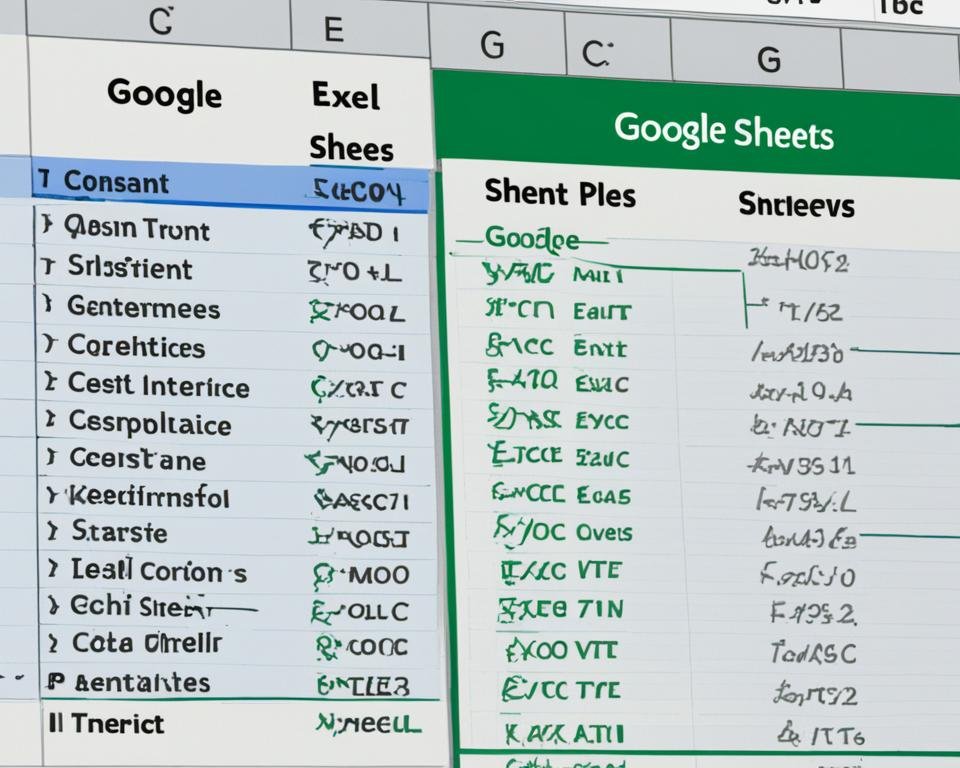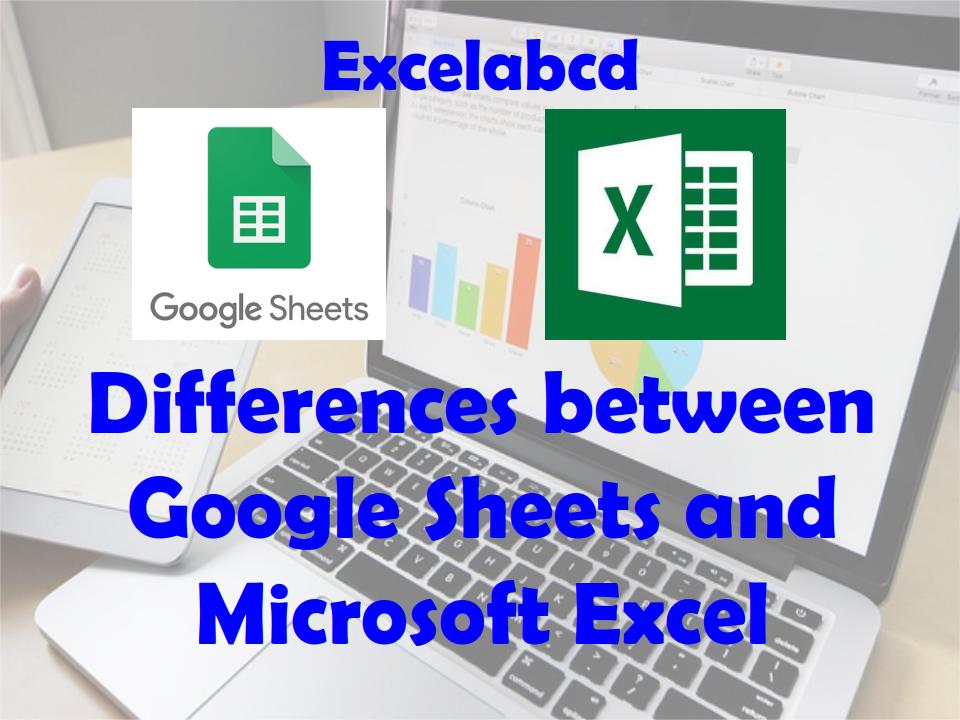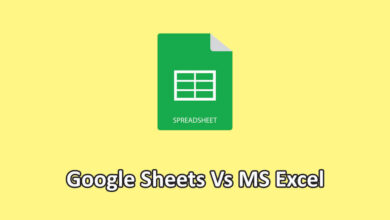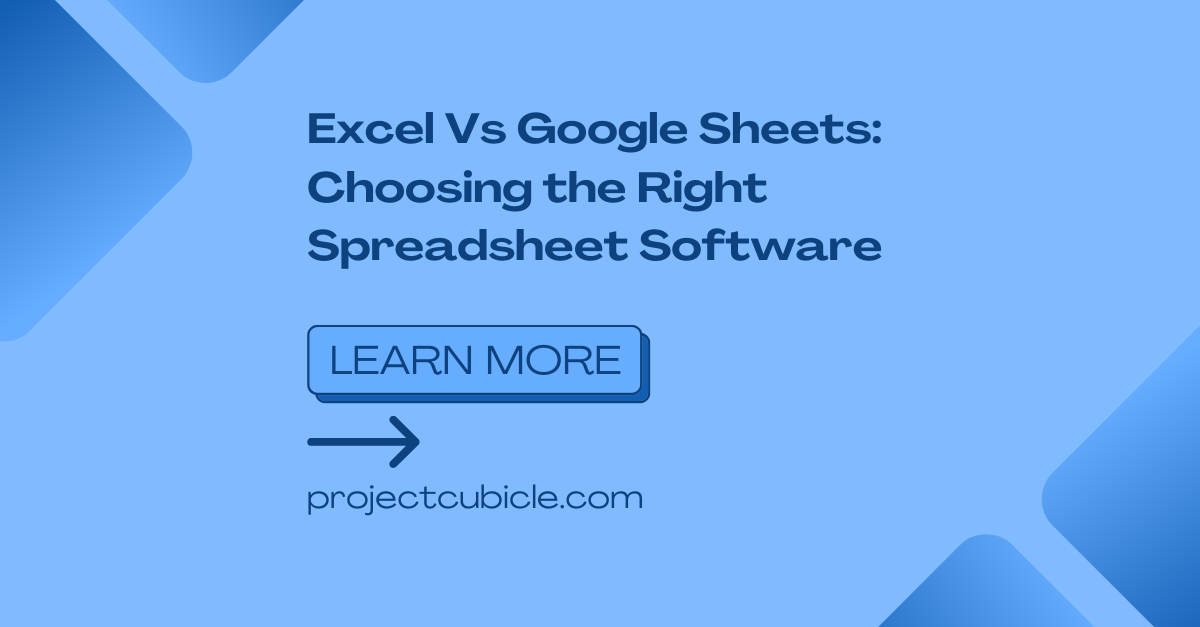Google Sheets vs Excel: Understanding Key Similarities and Differences

Introduction to Google Sheets and Excel

In the world of data management and analysis, two tools stand out: Google Sheets and Microsoft Excel. Both applications have significantly impacted how professionals handle data, offering various functionalities tailored to modern business needs. This comprehensive blog post will explore the key similarities and differences between Google Sheets and Excel, aiming to provide clarity for users contemplating which tool best suits their requirements.
What are Google Sheets and Excel?

Google Sheets is a part of the Google Workspace suite, offering a cloud-based solution for spreadsheets. It’s designed for collaboration and real-time editing, which makes it ideal for teams and remote workers. Excel, on the other hand, is part of Microsoft Office and has been the industry standard for decades. Known for its powerful computational capabilities and advanced features, Excel is available as a standalone application on both Windows and Mac.
User Interface and Accessibility

Google Sheets

- Google Sheets offers a clean, minimalistic interface with a focus on functionality.
- It’s entirely cloud-based, requiring only a web browser to access. This makes it highly accessible from any device with internet connectivity.
🔍 Note: For teams who frequently work remotely, the accessibility of Google Sheets ensures seamless collaboration without the need for VPN or corporate network access.
Excel

- Excel’s interface is more robust, featuring a traditional Ribbon UI which many users find familiar and customizable.
- Access can be gained through the installed software or via Microsoft 365, providing both local and cloud options.
Collaboration Capabilities

| Feature | Google Sheets | Excel |
|---|---|---|
| Real-Time Editing | Yes | Yes, with Microsoft 365 |
| Commenting | Yes, with notifications | Yes, but less integrated |
| Change Tracking | Yes, with version history | Yes, but less intuitive |

Data Analysis and Visualization

Google Sheets

- While Google Sheets has strong analysis features, it might not match Excel’s depth in advanced calculations.
- The visualization tools are adequate for basic charts and graphs but less extensive than Excel.
Excel

- Excel excels (pun intended) in providing powerful analysis tools like Power Query, Power Pivot, and advanced charting options.
- It supports large datasets with complex calculations, making it suitable for data scientists and financial analysts.
Automation and Integration

Google Sheets

- Google Sheets integrates seamlessly with other Google Workspace apps and can connect with various third-party services through Google Apps Script or Zapier.
Excel

- Excel’s automation features include VBA (Visual Basic for Applications) for custom scripting.
- It has excellent integration with the Microsoft ecosystem and Power Automate for workflow automation.
Cost and Licensing

Google Sheets is free with a personal Google account, while business accounts have access through G Suite. Excel requires a license which can be purchased outright or through a subscription model (Microsoft 365).
Performance and Scalability

While both tools handle large datasets, Excel typically performs better with larger files due to its processing power. Google Sheets, being cloud-based, can be less performant for very complex spreadsheets but scales well with multiple users.
🛠 Note: For extremely large datasets or complex calculations, Excel might be the better choice due to its superior performance capabilities.
As we've seen, the choice between Google Sheets and Excel depends largely on specific user needs. Google Sheets is excellent for collaboration and quick access from anywhere, making it a favorite for modern, remote teams. Excel, with its rich feature set, remains the powerhouse for heavy data analysis and complex calculations, particularly within environments where Microsoft tools are the standard.
Can I use macros in Google Sheets?

+
Yes, Google Sheets supports macros through Google Apps Script, but it’s not as advanced as VBA in Excel.
Is Google Sheets better for collaboration than Excel?

+
Google Sheets is generally considered better for real-time collaboration due to its cloud-based nature, making it easier for team members to work simultaneously.
Which tool is more cost-effective for a small business?

+
For small businesses, Google Sheets is more cost-effective as it offers free access with personal accounts, whereas Excel requires a purchase or a subscription.